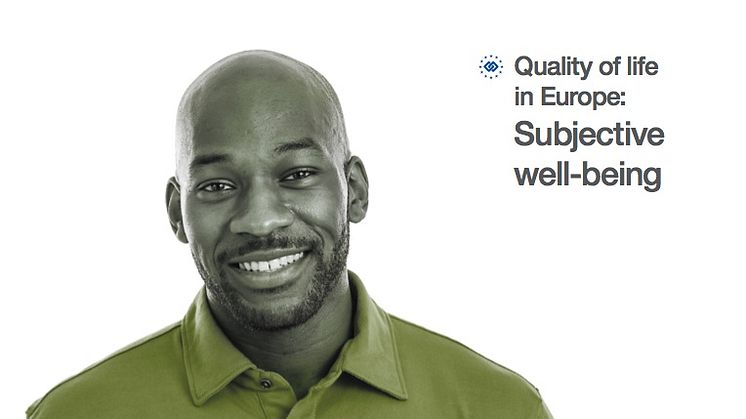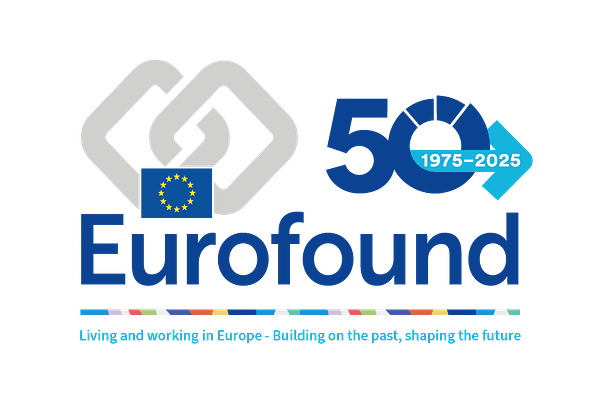
Press release -
Inequalities in well-being rise in Europe during crisis
(Dublin, Ireland): While life satisfaction increased marginally across the European Union between 2007 and 2011, happiness and optimism levels have fallen and perceived social exclusion has increased, indicating a decline in overall well-being in many European countries during the crisis. Eurofound’s new report assesses the impact of the crisis on the subjective well-being of Europeans, drawing policy-relevant findings from its third European Quality of Life Survey (EQLS). It is the first in a series of reports which covers social inequalities, quality of society and public services, and trends in quality of life in Europe over the past decade.
The results from the latest EQLS, fielded in all 28 EU Member States as well as six further European countries, shows how the crisis is affecting some groups more than others. The report identifies Europeans limited by illness or disability, those who are separated or divorced, and individuals in the middle-age bracket of 35–49 years as more likely to have low well-being. The lowest levels of subjective well-being are reported by people who are unemployed. The report goes on to identify particular dimensions of well-being where countries do poorly but also where they do well: for example, high levels of stress are found in France, high levels of loneliness in Italy and low levels of vitality in the UK; conversely, a high level of education satisfaction is noted in Romania and the Netherlands reports low levels of time pressure.
Many countries with higher levels of life satisfaction in 2007 reported lower satisfaction in 2011. In countries where there have been increases in well-being, they tend to have been enjoyed by those in the highest-income quartiles. Conversely, the largest falls were experienced by those in the bottom-income quartile, indicating that the gap in well-being between the wealthiest and the poorest members of the population has grown during the crisis.
At the national level, the analysis sounds warning bells for Finland, the Netherlands and Sweden – all witnessing declining levels of subjective well-being despite the relatively moderate impact of the economic crisis in these countries. Nevertheless, the countries in the cluster of least unequal countries, i.e. the Nordic countries and the Netherlands – continue to enjoy the highest levels of well-being on most measures. The Netherlands also has the lowest level of well-being inequality in Europe. It is important to note that these countries do not perform well just because they are wealthy. Denmark and Sweden have lower GDPs per capita than Ireland, and Finland has a lower GDP per capita than Germany. Data on well-being allow policymakers to identify the groups and countries that are bearing the brunt of the economic crisis, as well as those that are doing better than expected, and provides a new layer of evidence to aid policy.
Analysing well-being at a time of crisis is more relevant than ever before as it shows how different aspects of quality of life are affected, thereby informing debate on policy trade-offs. The report explores new empirical evidence on possible protective factors, showing for instance that not being in debt is an important factor for the well-being of people on low income. As Rob Anderson, team leader of Eurofound’s European quality of life survey, explains “these analyses help policy-makers identify the types of measures that could protect people who are already in vulnerable situations against loss of well-being”.
The report presents an innovative way of looking at inequalities in well-being; to measure the distribution of well-being within a country, differences in life satisfaction between the 20% with the highest life satisfaction and the 20% with the lowest life satisfaction in each country were computed. In addition, in each country it presents the average distance in life satisfaction between two individuals chosen at random. These analyses identify Bulgaria, Hungary, Slovakia, Cyprus, Romania, the UK and Austria as having particularly large differences in well-being inequality.
The evidence suggests clear benefits from reducing income inequalities within a country. Rising inequality may be linked to declining well-being in the countries with higher levels of life satisfaction in 2007, despite rising average incomes. Improving the situation of the least well-off is most likely to result in the largest gains in well-being.
This report is one of a series of new reports from Eurofound which examine the results from the third EQLS and changes in recent years. These include the overview report Quality of life in Europe: Impacts of the crisis (Eurofound, 2012) and the new reports on subjective well-being, social inequalities, quality of society and public services, and trends in quality of life in Europe over the past decade 2003–2012.
Related links
Topics
The European Foundation for the Improvement of Living and Working conditions (Eurofound) is a tripartite European Union Agency, whose role is to provide knowledge in the area of social and work-related policies. Eurofound was established in 1975 by Council Regulation (EEC) No. 1365/75.
For more information about Eurofound and its work, and free access to all our data and findings, visit our website and follow us on these social media channels: Twitter, Facebook, Google+, YouTube, or Flickr.


